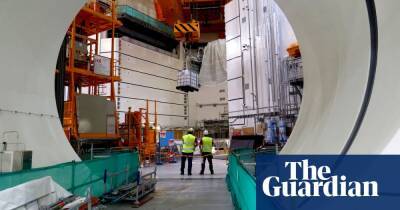Shell chief’s pay rose by a quarter in 2021 to £6m
The Shell chief executive Ben van Beurden’s pay rose by a quarter in 2021 to £6m, as the fossil fuel producer benefited from soaring energy prices amid calls for a windfall tax on energy companies.
The FTSE 100 company reported record profits during 2021, thanks in part to a gas price surge in the final three months of the year amid a rebound in demand for commodities as the global economy recovered from coronavirus pandemic lockdowns.
Van Beurden’s pay rise, to €7.4m (£6.1m) in 2021 from €5.8m (£4.9m) the year before, came amid widespread calls, including from the Labour party, for booming energy companies to pay a windfall tax on profits as people in Britain and beyond struggle with a cost-of-living crisis.
Average weekly earnings for British people rose by 4.3% in the year to December, meaning their real wages fell because of inflation, caused in part by higher energy prices.
Van Beurden was paid 57 times more than the median Shell worker in 2021, according to the company’s annual report.
Russia’s invasion of Ukraine has caused energy prices to rise further since the start of the year, suggesting that even higher bills may be likely for households and businesses.
Van Beurden was forced to withdraw Shell from its Russian fossil fuel business, including drilling projects at the Sakhalin-II liquefied natural gas facility, projects in Salym and Gydan, both in western Siberia, and its involvement in the Nord Stream 2 pipeline project, which has been cancelled since the invasion.
Shell also said it would stop buying Russian oil or gas, and would close its 500 petrol stations in the country.
Van Beurden said last week: “Our decision to exit is one we take with conviction.” However, in his foreword to the annual report he described
Read more on theguardian.com




















